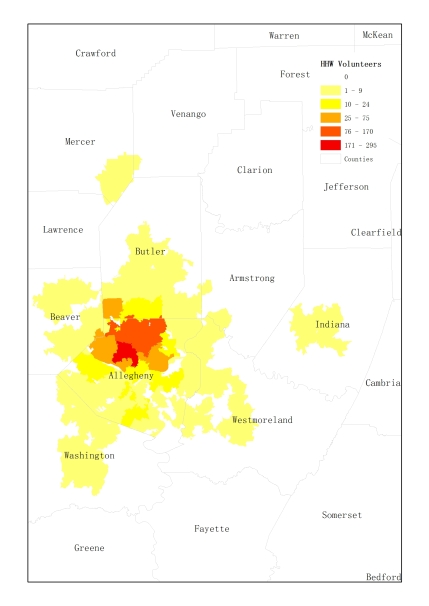I am research fellow at an international research organization, Chinese citizen, and have moved to the states in 2014 with work permit in the states. I found myself is not that into writing peer-reviewed journal articles but love geospatial analysis and I’ve been doing it since 2005. I tried to look for GIS analyst job in the states, basically in DC area. However, I just realized I am in such a awkward position now:
1) a lot of positions ask for security check, which is impossible for a Chinese citizen to pass it in the states;
2) Do employers normally not employ people whoever is overqualified? I have PhD degree in ecological economics from China, and I was told I am overqualified while I try to apply a GIS analyst position. I am not that competitive while I wanna a higher and more advance positions, but I am overqualified when I want a entry level job. To be honest, i am just like to play with data, and just wanna get a job in the states while my husband is in a med school here.
3) How can approve to my future employer that I have the GIS knowledge they ask for. As you known, people usually claim they are GIS pro however the skills do vary. I could program in Python and also in R, e.g. general geospatial analysis, hydrological balance modeling. I’ve gone through the book of Esri ArcgGIS Desktop Associate Certification Study Guide, and I am confident I could pass it, so I decide to go for the professional certification directly. I’ve started to go through the books and materials that Esri ArcGIS Desktop Professional (10.1) a month ago. I am half way through now, and am start to wonder if the certificate is ever going help for getting a job in GIS industry. It’s going to be great to hear more of your insights.
I know it’s a long way to go. I’ve been check job board quite regularly and these are questions might come to me (or you) in the coming interviews. look like I have a lot of homework to do.
Skills
- Tell me about a new skill you taught yourself (need not be GIS). How did you teach yourself?
- Here’s an online map. What works well? Why? Where do you see room for improvement? Why?
- How would you describe what GIS is to a sixth grader?
- What’s your favorite programming language? Why?
- What’s the topic of the last GIS presentation you gave for work or school? How did the presentation go? How did you prepare for it? What would you have changed, looking back on it?
- What book or website do you reference the most in doing your GIS work/homework? What sort of information are you typically seeking?
- What are three things you might do if you got stuck while working on a school or professional project?
- What can you tell me about open source? How do you feel about it? Have you used it? How? Why?
- What can you tell me about open data? Have you used it? How? Why?
- What do you know about OpenStreetMap? Have you contributed? Why or why not?
- Do you use a GPS in your car/bike or on foot? Why or why not?
Interest and Motivation
- Tell me about a map or mapping project you did outside of work or school.
- What’s the next thing you want to learn about in GIS/geospatial technology? Why?
- What first got you interested in geospatial technology?
- Who was most influential in spiking your interest in GIS?
- If you are the GIS person in the backroom, why do you think what you do should be in/on the ________ (boardroom/sales team/training team/etc.)?
Professionalism and Industry Awareness
- What do you like best about your current/last job/GIS courses at school?
- Give me your elevator pitch for why this company needs your GIS skills.
- Are programming skills important in GIS? Why/why not?
- Will the GIS profession go the way of the office secretary/typist?
- Does GIS belong in IT or elsewhere (planning, engineering, etc.)?
- Do you think like a geographer or a ______ (marketer, forester, geologist, programmer, etc.)?






